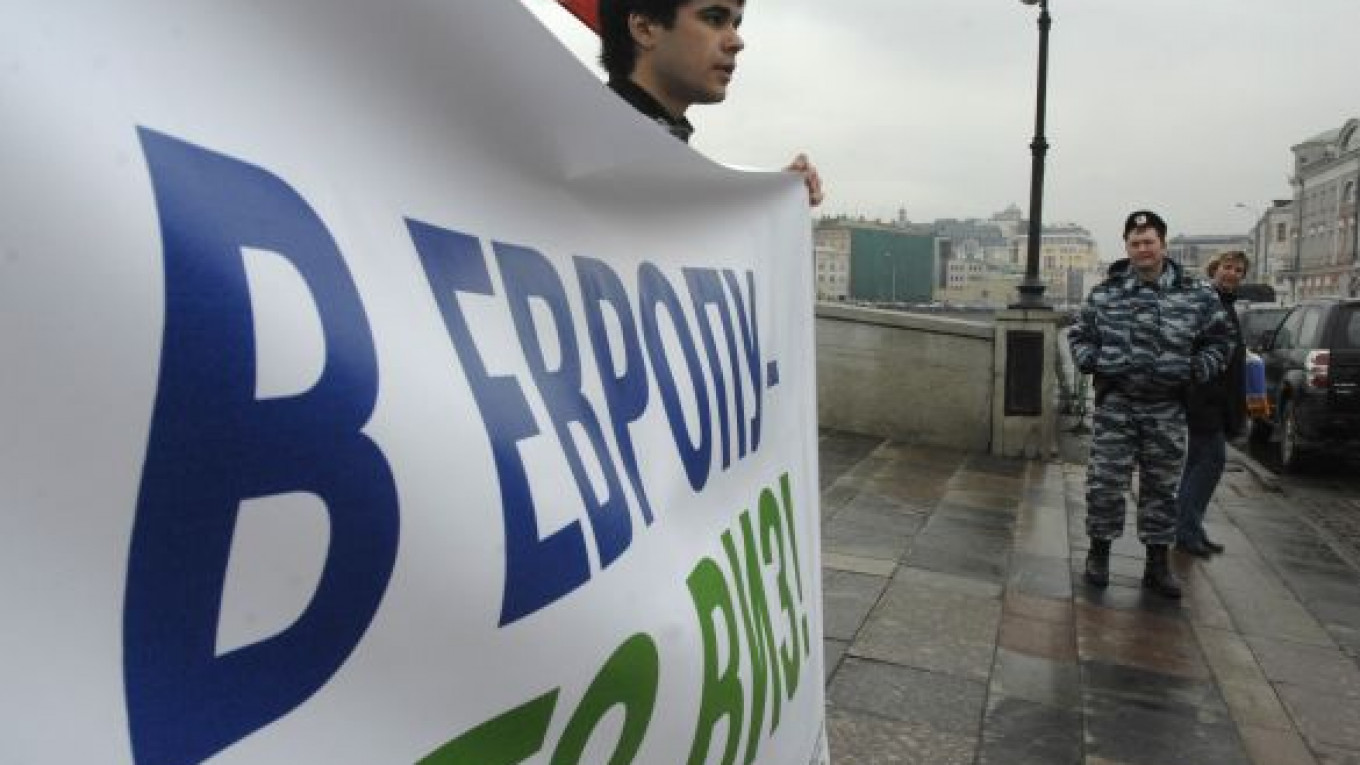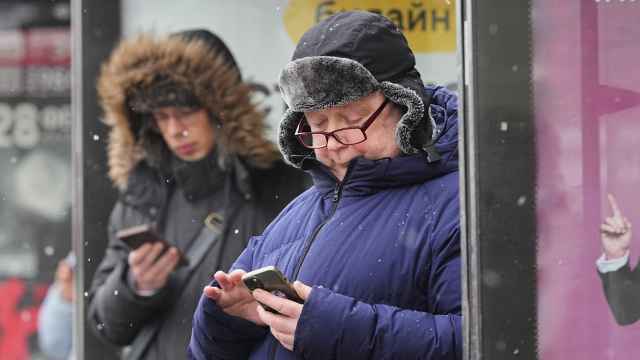A dispute over passports issued to Russian bureaucrats is holding up an agreement with the European Union that would considerably reduce visa hassles for business travelers and other professionals.
But a senior State Duma lawmaker said the parliament might vote on a much-delayed visa agreement with the United States as early as next week.
The status of official passports is the last unsolved issue in a new visa facilitation agreement with Brussels, an EU diplomat familiar with the negotiations told The Moscow Times.
"Everything else is set," said the diplomat, speaking on condition of anonymity because he was not authorized to speak to the media.
The Foreign Ministry has publicly insisted on including official passports in the deal. "For us, this is an important matter of principle," ministry official Anvar Azimov told Interfax last month.
But some EU member states are wary that including these passports might pose security risks, the European diplomat said. One concern is that no one in the Russian government seems to be able to say how many holders of official passports exist.
"There are only estimates that range from 10,000 to 40,000," the EU diplomat said.
Known as "service passports" in Russian, these documents are issued to a wide range of federal and regional state employees working for anything from local legislatures to state corporations. A recent Kommersant article, quoting official figures, put their number at 15,000 holders. Many EU member countries do not have any equivalent for them.
Foreign Ministry spokespeople were unavailable for comment over the extended Russia Day holiday weekend.
The facilitation agreement would entitle businessmen, journalists and employees of nongovernmental organizations to multiple-entry visas of up to five years. Also covered will be scientists, official delegation members and participants in cultural and sports events.
But stays would be limited to three months, and only so-called bona fide applicants would be eligible, which usually means second-time applicants who have not overstayed a previous visa.
Independent of the facilitation agreement, Moscow and Brussels have been talking for years about scrapping visas altogether. Both sides agreed on a list of more than 40 common steps last December, and Moscow has said it would like to see those conditions fulfilled by 2013.
Meanwhile, a similar but wider facilitation agreement with the United States has been scheduled for a first reading in the Duma by the end of July, to official documentation on the parliament's website.
The lower house should vote on the bill just before presidents Vladimir Putin and Barack Obama meet for a Group of 20 summit in Mexico on June 18 and 19, according to Andrei Klimov, first deputy chairman of the Duma's International Affairs Committee. "We will try to create a positive atmosphere for them," Klimov said in an interview.
The agreement with the United States envisages that all travelers get three-year multiple-entry visas as a rule.
A Message from The Moscow Times:
Dear readers,
We are facing unprecedented challenges. Russia's Prosecutor General's Office has designated The Moscow Times as an "undesirable" organization, criminalizing our work and putting our staff at risk of prosecution. This follows our earlier unjust labeling as a "foreign agent."
These actions are direct attempts to silence independent journalism in Russia. The authorities claim our work "discredits the decisions of the Russian leadership." We see things differently: we strive to provide accurate, unbiased reporting on Russia.
We, the journalists of The Moscow Times, refuse to be silenced. But to continue our work, we need your help.
Your support, no matter how small, makes a world of difference. If you can, please support us monthly starting from just $2. It's quick to set up, and every contribution makes a significant impact.
By supporting The Moscow Times, you're defending open, independent journalism in the face of repression. Thank you for standing with us.
Remind me later.







